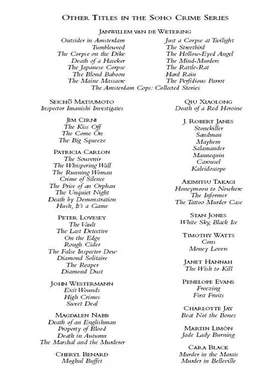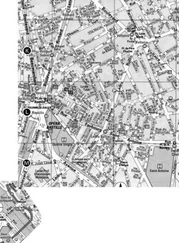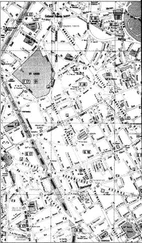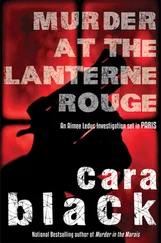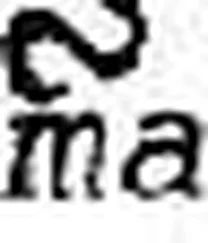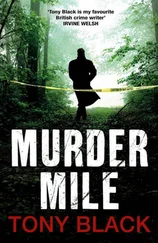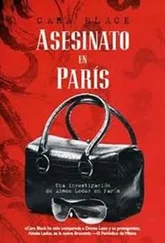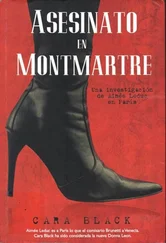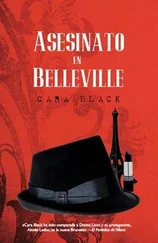“What’s this all about?”
“Shouldn’t you tell me, Monsieur Teynard?” She stirred her sugar.
“I have appointments….” He smoothed his linen trousers and started to stand up.
“I told Madame Goroux your plans had changed.”
For the first time he looked surprised.
“This might refresh your memory,” she said, wiping the sticky table off with a napkin and spreading the file in front of him. “I’m a visual person. Seeing things in black and white brings it home to me. Maybe you are, too. See, there’s your name.”
Teynard’s chin sagged.
She pointed. “Here’s another visual.” She pulled out the photo of her and her father. “There’s a date. See Le Figaro on the tabac stand behind us—July 15, 1976. I even checked. The old noon edition came out at eleven A.M. Doesn’t fit with the surveillance record, does it? My father was with me July 15, not on surveillance as this shows.”
“You’re talking about ancient history,” Teynard said.
“My father was framed,” she said, “for something he didn’t do.”
“The facts speak for themselves.”
“ Pas du tout —they lie,” she said. “But the rumor he was dirty follows him and me, even now.”
“That’s old news,” he said. “If you had more going on in your life you wouldn’t be hung up on the past.”
Rude man. Maybe that was true. But it was none of his business.
“Move on, young lady,” he smiled. “Get a life. Isn’t that how they say it?”
Teynard didn’t like women. Or maybe just her. But something about his dapper persona didn’t match his hard eyes.
“Good advice, Monsieur Teynard,” she said. “I’ll move on to the prosecutor, Edith Mésard.”
She saw a flicker of interest in his eyes.
“And Monsieur Szlovak,” she lied. “He has a better memory than you.”
“Talk with Dray,” he said. “Before you make more of a fool of yourself.”
And then she knew. Dray and Teynard were thick. Pudding thick, like thieves.
“It was you two, wasn’t it?”
Something caught in his throat. “What are you …?”
“Don’t lie again,” she said. “For more than twenty years, you’ve been afraid someone would accuse you of that, haven’t you? But my father took the fall. Maybe he was just convenient, having a terrorist wife and all.”
Teynard shook his head. “You aren’t making sense,” he said in a quiet voice. “I need to get back to the office.”
“But it makes perfect sense,” she said. “Especially if he got my mother to inform, and cut a deal for a light prison sentence for her. He left the force with honors, too. Things don’t often happen like that if a police officer has been under disciplinary review, do they?”
Teynard looked away. “Typical flic ’s kid!”
“Matter of fact”—she leaned forward and downed her espresso—“in the Commissariat, you probably bounced me on your knee!”
That should make him feel old. And dried up, like he looked under the tan and his GQ fashion attempt.
“What do you want?”
“Papa’s vindication,” she said. “And what you know about my mother.”
He shrugged. “I’m retired. What makes you think I know anything?” She’d saved the best for last, hoping he’d nibble. Well, he’d sort of nibbled.
“But I know about the Modigliani paintings, you see,” she said, pulling the Figaro article out. “They weren’t lost at all. You signed for their consignment to the police repository. But here they are in a 1984 London exhibition.”
He stood up. “I’m not the bad guy,” Teynard said.
“Maybe from your perspective … what did you and Dray do with the money?”
“I don’t have to listen to this.”
“But the prosecutor will,” she said. “Especially when I reopen the inquiry. You’re in deep, Teynard. Deep and dirty.”
“How? There’s no proof,” he said. But for the first time his eyes were unsure.
“Looks like proof to me,” she said. “Laborde’s stolen paintings confiscated from the Left Bank Gallery by you, then showing up in London … sold to willing buyers. One work was acquired for 379,000 FF *in a Paris sale in June 1985. The other was bought for 1,737,000 FF **in March 1991, again at auction.”
Teynard’s shoulders sagged.
*(US$ 54,930)
**(US$ 251,739)
“Chump change Teynard … they’d be worth so much more now,” she said. “You should have held onto them.”
He sat down. He looked much older.
“What have you done with the money?” she asked.
“I’ve been tracking Jules Bourdon for years,” he said, his voice flat. “He’s here and I get a bad feeling you’ll try to screw it up.”
“Screw what up?”
“None of your business.”
Is that why Stefan had surfaced?
“My mother went to Africa with him, didn’t she?”
“Fool!” Teynard said. He shoved the espresso away. “There’s more. Much more.”
“More?”
“Diamonds. Investment-quality diamonds from Africa.”
Diamonds … is that what Jutta and Gisela were after? Was that what this had all been about? Were the diamonds what had been in Liane Barolet’s mother’s coffin?
“When the terrorists kidnapped Laborde he was fat with investment diamonds,” Teynard said. “They had perfect planning or a stroke of dumb luck, who knows, but the minister and Laborde’s old Milice comrades were coming for their cut. Laborde had bribed his friends in the government for concessions. They were happy to use the old colonial network and keep the spoils among friends.”
But nothing for the Africans who lived there, Aimée thought.
“That’s why Bourdon’s here, risking his life,” said Teynard.
And she saw it in his eyes, alive and predatory.
“Bourdon’s what you want, isn’t he?” she asked. “Some kind of vendetta?”
“Call it payback time.” Teynard rolled his pant cuff up to midcalf. Above his sock, she saw a flesh-colored prosthesis. “He shot my kneecap to bits. They removed my leg to my thigh and called me lucky. Now it’s my turn to make him lucky.”
“I see,” she said.
“Do you?” Teynard had warmed up. “They’re lice. Punks who called it a political statement when they blew people up or threw bank-robbery money from the Metro windows. Calling it capitalism for the masses. But Jules Bourdon, he was a smart arnaqueur , a con who used the idiots. And he’s never stopped.”
“So Jules Bourdon fled to Senegal … why?”
“Not a lot of options when you’re wanted on several continents,” Teynard said. “He worked there as a mercenary.”
“What does Romain Figeac have to do with it?”
“Figeac had a score to settle, too. Seems his wife’s baby was Bourdon’s. Not his. He wanted the world to know what a con man Bourdon really was.”
“So Jules Bourdon killed Figeac before Figeac could expose him? And Ousmane was killed because he hid Idrissa?”
Teynard’s eyes narrowed. “Something like that. I could have sworn time stood still when I saw you,” Teynard said. His voice had changed. It was low and full of something. Some dark emotion riding near the surface.
“Why?” But she knew.
“She took my breath away,” he said.
Aimée’s hand shook. The way he said it made her sick. Like he had some claim on her.
He took in her reaction. “Has she been in contact with you?”
So he was looking for her mother, too.
Aimée shook her head.
“And you wouldn’t tell me if she had,” Teynard said.
STEFAN RUBBED HIS EYES. His back hurt from sleeping in the stiff chair. He’d ordered a meal from the café opposite, had it brought up. He’d spent the whole night and day watching. A woman had gone into the building. The only things visible now were silhouettes in the Action-Réaction window.
Читать дальше
